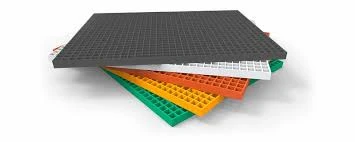
-
 Afrikaans
Afrikaans -
 Albanian
Albanian -
 Amharic
Amharic -
 Arabic
Arabic -
 Armenian
Armenian -
 Azerbaijani
Azerbaijani -
 Basque
Basque -
 Belarusian
Belarusian -
 Bengali
Bengali -
 Bosnian
Bosnian -
 Bulgarian
Bulgarian -
 Catalan
Catalan -
 Cebuano
Cebuano -
 China
China -
 China (Taiwan)
China (Taiwan) -
 Corsican
Corsican -
 Croatian
Croatian -
 Czech
Czech -
 Danish
Danish -
 Dutch
Dutch -
 English
English -
 Esperanto
Esperanto -
 Estonian
Estonian -
 Finnish
Finnish -
 French
French -
 Frisian
Frisian -
 Galician
Galician -
 Georgian
Georgian -
 German
German -
 Greek
Greek -
 Gujarati
Gujarati -
 Haitian Creole
Haitian Creole -
 hausa
hausa -
 hawaiian
hawaiian -
 Hebrew
Hebrew -
 Hindi
Hindi -
 Miao
Miao -
 Hungarian
Hungarian -
 Icelandic
Icelandic -
 igbo
igbo -
 Indonesian
Indonesian -
 irish
irish -
 Italian
Italian -
 Japanese
Japanese -
 Javanese
Javanese -
 Kannada
Kannada -
 kazakh
kazakh -
 Khmer
Khmer -
 Rwandese
Rwandese -
 Korean
Korean -
 Kurdish
Kurdish -
 Kyrgyz
Kyrgyz -
 Lao
Lao -
 Latin
Latin -
 Latvian
Latvian -
 Lithuanian
Lithuanian -
 Luxembourgish
Luxembourgish -
 Macedonian
Macedonian -
 Malgashi
Malgashi -
 Malay
Malay -
 Malayalam
Malayalam -
 Maltese
Maltese -
 Maori
Maori -
 Marathi
Marathi -
 Mongolian
Mongolian -
 Myanmar
Myanmar -
 Nepali
Nepali -
 Norwegian
Norwegian -
 Norwegian
Norwegian -
 Occitan
Occitan -
 Pashto
Pashto -
 Persian
Persian -
 Polish
Polish -
 Portuguese
Portuguese -
 Punjabi
Punjabi -
 Romanian
Romanian -
 Russian
Russian -
 Samoan
Samoan -
 Scottish Gaelic
Scottish Gaelic -
 Serbian
Serbian -
 Sesotho
Sesotho -
 Shona
Shona -
 Sindhi
Sindhi -
 Sinhala
Sinhala -
 Slovak
Slovak -
 Slovenian
Slovenian -
 Somali
Somali -
 Spanish
Spanish -
 Sundanese
Sundanese -
 Swahili
Swahili -
 Swedish
Swedish -
 Tagalog
Tagalog -
 Tajik
Tajik -
 Tamil
Tamil -
 Tatar
Tatar -
 Telugu
Telugu -
 Thai
Thai -
 Turkish
Turkish -
 Turkmen
Turkmen -
 Ukrainian
Ukrainian -
 Urdu
Urdu -
 Uighur
Uighur -
 Uzbek
Uzbek -
 Vietnamese
Vietnamese -
 Welsh
Welsh -
 Bantu
Bantu -
 Yiddish
Yiddish -
 Yoruba
Yoruba -
 Zulu
Zulu
fiberglass field tank
The Versatility and Benefits of Fiberglass Field Tanks
In recent years, the demand for efficient and durable storage solutions has surged, particularly in various industrial sectors. Among these solutions, fiberglass field tanks have emerged as a preferred choice due to their impressive combination of strength, lightweight characteristics, and resistance to a variety of environmental factors.
Fiberglass, composed of plastic reinforced by glass fibers, offers a unique blend of properties that make it exceptionally suited for field tanks. One of the primary advantages of fiberglass is its resistance to corrosion. Unlike metal tanks, which can rust and degrade over time from exposure to chemicals or harsh weather conditions, fiberglass remains impervious to these potential issues. This resistance not only extends the lifespan of the tank but also minimizes maintenance costs, making it a cost-effective solution in the long run.
Another significant benefit of fiberglass field tanks lies in their lightweight nature. Compared to traditional materials like steel or concrete, fiberglass tanks are considerably lighter, which simplifies transportation and installation. This lightweight characteristic enables easier handling, reducing labor costs and time associated with the setup process. Furthermore, the flexibility of fiberglass allows for the design of tanks in a variety of shapes and sizes, accommodating the specific needs of different applications, from agricultural uses to industrial storage.
Durability is another key feature that sets fiberglass field tanks apart. They are designed to withstand extreme temperatures and harsh environmental conditions, making them suitable for both hot summer days and frigid winters. The structural integrity of fiberglass ensures that these tanks will not crack or become brittle over time, even when subjected to stress or impact. This durability is a crucial factor for industries that rely on consistent and reliable storage solutions.
fiberglass field tank

Moreover, fiberglass field tanks are significantly more environmentally friendly than their metal counterparts. The production of fiberglass inherently consumes less energy and has a lower carbon footprint. Additionally, because they resist corrosion and do not leach harmful substances into the environment, fiberglass tanks help protect surrounding ecosystems, making them a responsible choice for industries focused on sustainability.
For those in agriculture, fiberglass field tanks provide an exceptional solution for water storage and irrigation needs. Their ability to hold large volumes of water without contamination makes them ideal for farms that require reliable water sources for crops and livestock. This reliable storage contributes to better resource management, especially in regions where water scarcity is a concern.
In the chemical and petroleum industries, fiberglass tanks are quickly becoming the go-to option for storing various liquids and hazardous materials. The non-reactive nature of fiberglass ensures that stored materials remain uncontaminated, while its high resistance to chemical corrosion keeps the integrity of the tank intact. This feature is especially critical for companies that handle volatile substances, where safety and reliability are paramount.
In conclusion, fiberglass field tanks represent a modern solution designed to meet the demands of various industries. Their resistance to corrosion, lightweight design, durability, and environmental benefits make them an ideal choice for storage needs across multiple sectors. As industries continue to innovate and seek sustainable practices, the versatility and reliability of fiberglass tanks will likely become even more prominent. Investing in fiberglass field tanks not only enhances operational efficiency but also aligns with a commitment to environmental stewardship and responsible resource management. As we move toward a more sustainable future, embracing fiberglass technology in storage solutions is indeed a formidable step forward.









